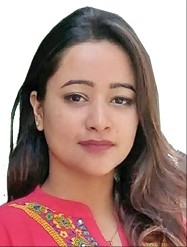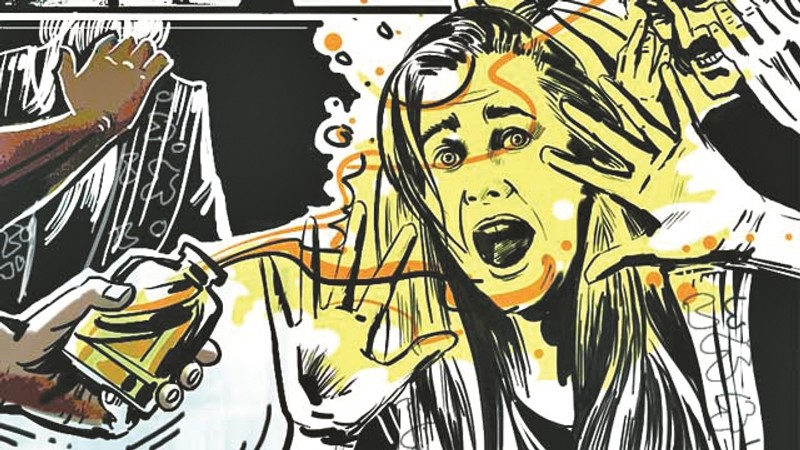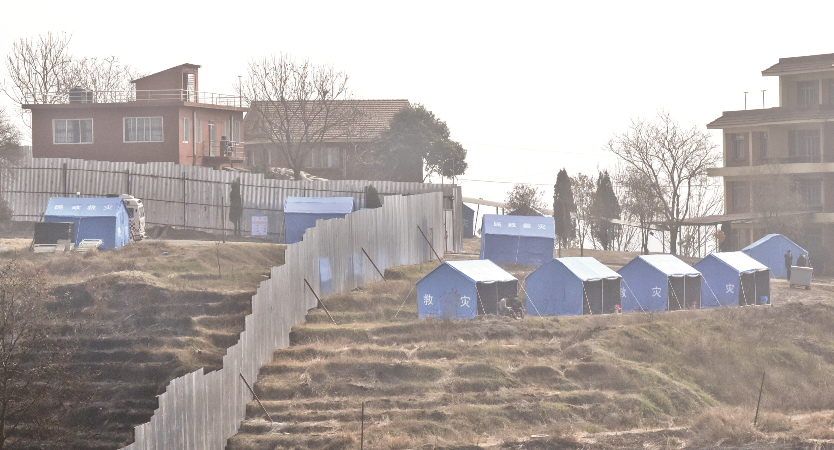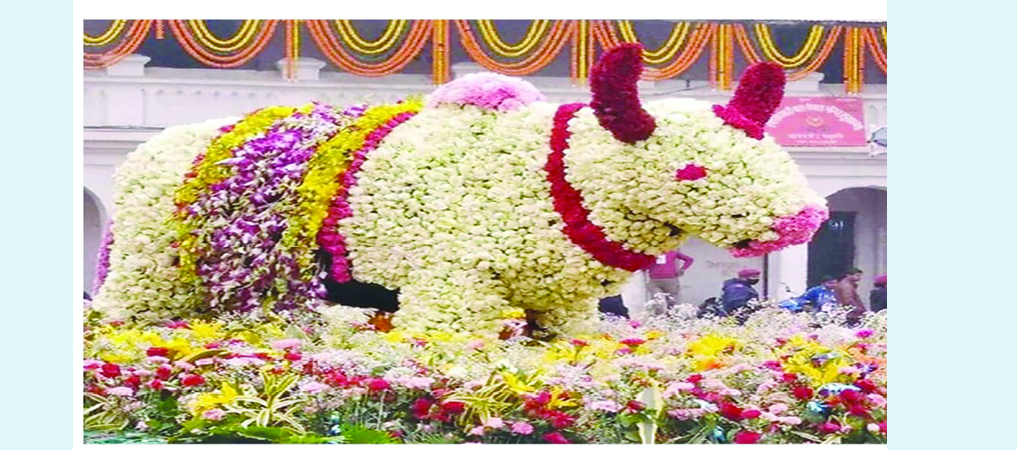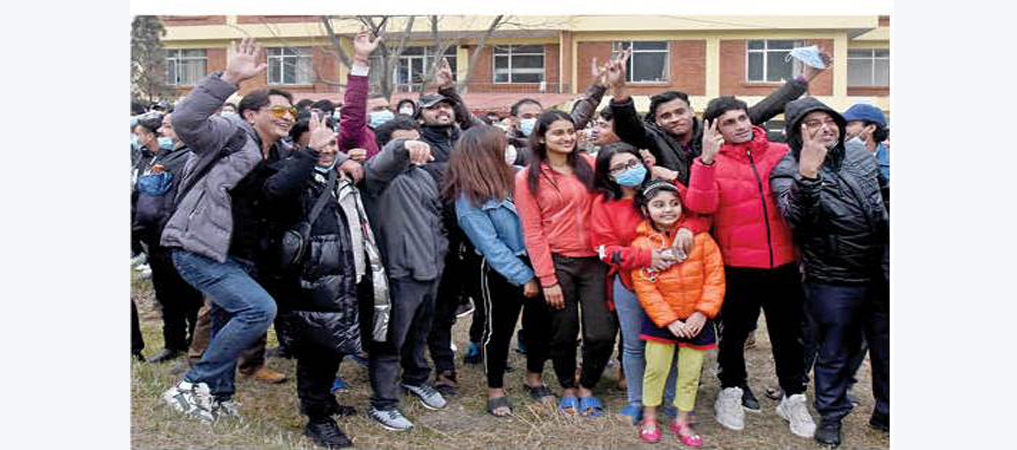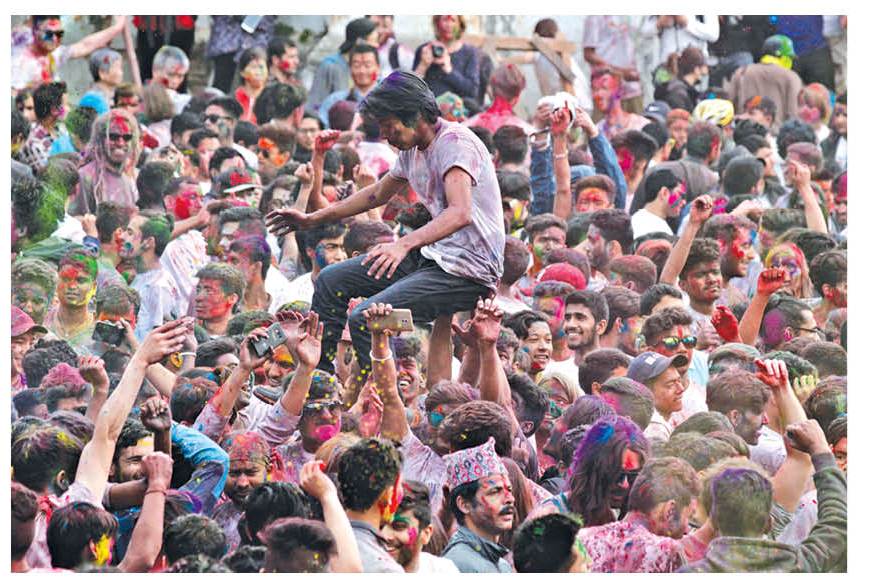Quake amputee swims to world fame
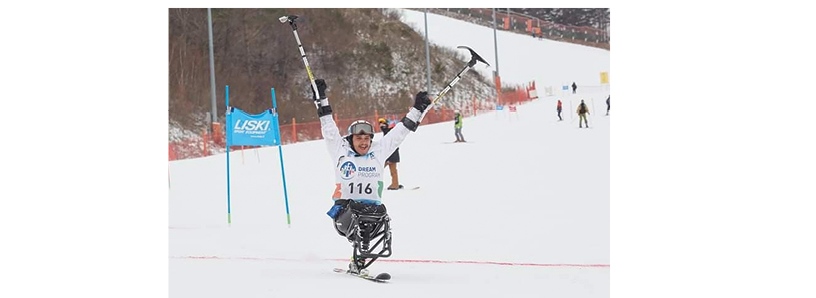
By Sampada Anuranjanee Khatiwada
Kathmandu, Feb. 11: The Gorkha earthquake, which struck Nepal on April 25, 2015 took lives of more than 9,000 people and left around 22,000 injured. Numerous people were buried in their houses, while many were rescued by the army, police and other volunteers.
Ramesh Khatri, 22, of Dailekh Mahaku Gaupalika, currently living in Jorpati was one of the numerous victims injured in the earthquake.
He was working in a Kathmandu-based guest house when the 7.6 magnitude earthquake hit Nepal. “I was having my lunch with two of my co-workers when the earthquake hit,” Khatri said. “We tried to escape from the building, but two of my friends died in front of me as the ceiling fell off.”
Khatri said that he was also trapped under the ceiling and was stuck there for 12 hours.
“I was rescued by the police, but the pain I had to go through is indescribable,” he said.
Khatri was then rushed to Tribhuwan University Teaching Hospital (TUTH), Maharajgunj, where prompt treatment saved his life.
“I had to undergo an operation as both of my legs were crushed,” he said. “The government bore all my medical expenses,” he said.
The massive tremor left Khatri crippled for life as both of his limbs were amputated below the knees.
Cut to almost five years after the quake, despite the disability, Khatri now stands the national level para swimmer of Nepal. His disability has turned out to be his greatest strength.
The 11th grader has been continuing his studies and keeps a keen interest in sports.
“I thought my life was over and I would never be able to even stand up,” he said. “My insecurity about how to live my life was more painful than the amputation of my limbs.”
Khatri said that he was supporting his family financially prior to the quake. “I was devastated thinking that I would never be able to support my family again. But constant support and encouragement from my family, friends and an organisation called ‘Humanity and Inclusion’ (HI) kept me going,” he said.
Senior physiotherapist, Sunil Pokharel, helped me to recover and prosthetics was also fitted below my thighs.
“HI never allowed me to feel helpless; it rather made me hopeful about how to turn my weakness into strength,” he said.
After the completion of his treatment, Khatri started practicing swimming. In association with the organisation, he enrolled himself in a 15-day swimming class, which changed his life for the better.
“I was scared during the initial days of my coaching, but gradually I started enjoying it,” he said. “The more I practiced, the more I started enjoying it.”
After the completion of training, a national level para swimming competition was held at Satdobato Swimming Complex where he came out a winner. “It was when I won a gold medal for the first time in my life and President Bidya Devi Bhandari had honoured me with the medal. It was when I realised I could do a lot more in this field.”
It is often said that whatever happens, happens for good. For Khatri, his devastating accident during the quake and his disability made him explore his potentialities even more.
Khatri then started focusing more on practice. He also represented Nepal in Indonesia Games, 2018. So far Khatri has won more than a dozen medals in national level swimming competitions.
He has also been taking part in international para swimming competition. “Even though I have not been able to win a gold in international competition, I dream to participate in the 2020 Paralympic Games and make my nation proud.”
Apart from swimming, Khatri is interested in other sports such as basketball, cricket and skiing. He had recently visited South Korea to participate in a skiing event.
“I love to travel and explore new places too. I have also been to the Everest Base Camp recently with Bodhisattavas in Action (BIA) foundation,” he said.
There are many people in our society who have been suffering from various disabilities. It is obvious for People with Disabilities (PWDs) to think that they are not able to do anything in life.
“But the reality is different. I wish I could inspire them to do more and push their limits more in life. PWDs shouldn’t hide under the covers, they should accept their uniqueness, face the society and strive for the best. I also appeal the common people to be inclusive and disability-friendly,” he said. “The society shouldn’t overlook PWDs; it should accept and motivate them instead.”
Khatri also said that many people like him would be empowered and would get exposure if the government would do something to support para athletes and make the roads, offices and all other public places disability-friendly.
Recent News

Do not make expressions casting dout on election: EC
14 Apr, 2022
CM Bhatta says may New Year 2079 BS inspire positive thinking
14 Apr, 2022
Three new cases, 44 recoveries in 24 hours
14 Apr, 2022
689 climbers of 84 teams so far acquire permits for climbing various peaks this spring season
14 Apr, 2022
How the rising cost of living crisis is impacting Nepal
14 Apr, 2022
US military confirms an interstellar meteor collided with Earth
14 Apr, 2022
Valneva Covid vaccine approved for use in UK
14 Apr, 2022
Chair Prachanda highlights need of unity among Maoist, Communist forces
14 Apr, 2022
Ranbir Kapoor and Alia Bhatt: Bollywood toasts star couple on wedding
14 Apr, 2022
President Bhandari confers decorations (Photo Feature)
14 Apr, 2022
